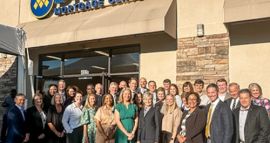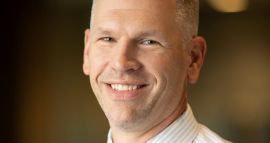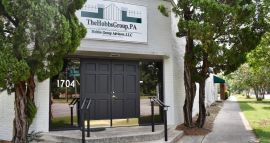Millions still available in loan program targeting Southern states
Melinda Waldrop //March 7, 2022//
Millions still available in loan program targeting Southern states
Melinda Waldrop //March 7, 2022//
Less than $300,000 of $17 million in loans targeted to help small business across the South recover from the COVID-19 pandemic have gone to S.C. businesses, and organizers of the economic recovery fund want business owners to know that more money is available.
The Southern Opportunity and Resilience Fund, designed to fill gaps left by government pandemic relief, had arranged 357 low-interest loans through community lenders as of January. Ten of those, totaling $291,000, have been deployed in South Carolina, with six loans funded in the Midlands.
“We’re excited to get the word out to more businesses, particularly in South Carolina, because we haven’t had as much demand there as we thought,” Caroline Yarborough, officer of syndications and strategy at Calvert Impact Capital, told the Columbia Regional Business Report. “We know there are a lot of businesses across the state that would benefit from a program like this.”
Working through local and national Community Development Financial Institutions, the SOAR Fund makes loans of up to $100,000 and free business support available to businesses or nonprofits with 50 or fewer full-time employees in Alabama, Arkansas, Delaware, Florida, Georgia, Louisiana, Maryland, Mississippi, North Carolina, Oklahoma, South Carolina, Tennessee, Texas, Virginia, West Virginia and the District of Columbia. Eligible applicants are matched with lenders to receive a share of a capital pool funded by philanthropic, private and corporate investors that has grown to $62.5 million with recent support from Visa Foundation, Compton Foundation and W.K. Kellogg Foundation.
Nonprofit financial subsidiary Calvert Impact Capital helps arrange dispersion of the fund, managed by LISC Fund Management. Thirteen CDFIs are originating loans purchased by the fund, with Ascendus, NDC and Opportunity Fund serving South Carolina.
“At this critical moment, CDFIs have been a lifeline for small business owners, particularly women and people of color, in rural and urban communities where many are underbanked and left out of much-needed COVID-19 relief,” Cynthia Muller, director of mission investment at the W.K. Kellogg Foundation, said in a news release. “The SOAR Fund has coalesced a dynamic network of trusted lenders across the South and Southeast who are rapidly deploying flexible capital to reimagine a more equitable economy for all.”
NDC worked with Overhead Station Gift Shop in Rock Hill to arrange a loan that the business used to refurbish its storefront, purchase new merchandise and buy more display fixtures.
“The reason I liked this loan is because of the interest-only payments for a year,” co-owner Tami Windell said in the release. “I worked with NDC to design a loan I could afford to pay back.”
Windell represents one of the underrepresented groups of business owners the fund is designed to reach. A November 2021 study by online small business consortium Alignable found that 49% of minority-owned small businesses reported not being able to pay rent that month.
Of $11 million in SOAR loans distributed to nearly 250 small businesses as of November 2021, 79% went to business owners who identified as a woman or a person of color, while 49% went to Black-owned businesses. Almost 90% went to businesses with 10 or fewer full-time employees, and 76% of recipients reported annual revenues of less than $500,000.
“Across the states that SOAR serves, there has been a historical disinvestment in communities, so it’s really important to make sure that those businesses that don’t have access to traditional bank sources or weren’t eligible for a PPP loan or other relief-type programs have the access to capital they need, because those are often the businesses that need it the most,” Yarborough said. “Those are often the businesses that don’t have a network of family members that can help them out during a tough time or that don’t have a cushion of savings that can support them in significant gaps in their revenues.”
The SOAR fund has distributed loans to restaurants, early childhood centers, health service providers, produce farms, contractors and retailers, among other recipients.
“Pandemic-related dispersions have been diverse across businesses,” Yarborough said. “It could be a new Plexiglass contraption that a business owner needs to put in their store to be able to offer aid, or it could be additional transportation for employees because of COVID precautions. It’s really diverse what businesses need right now, but the flexibility of the SOAR fund has been really beneficial.”
Applications and more information are available online at www.TheSoarFund.org, and Yarborough anticipates a surge in interest as other relief programs, such as the Paycheck Protection Program and the U.S. Small Business Administration’s COVID Economic Injury Disaster Loan program, begin to exhaust their funds.
“We’re expecting there to be an increase in demand for SOAR loans as other recovery programs wind down,” she said. “We saw PPP go into the summer and so we saw less demand for SOAR loans because PPP was such a great opportunity for business owners, but as businesses shift to assessing what they need over the next year to five years, I think SOAR is a really great fit. That’s why we’re working so hard to get the word out, because we want to make sure that businesses know this is an option. The rates are affordable and there’s a 12-month interest-only period, so it’s really set up to give business owners time to get back on their feet.”
Initial SOAR fund support came from Capital One, Ceniarth, the Jacksonville, Fla.-based Chartrand Family, the David and Lucile Packard Foundation, F.B. Heron Foundation, Fidelity Charitable with support from CapShift, the Grove Foundation, the Heifer Foundation, JPMorgan Chase, Mercy Investment Services, Microsoft, the Ms. Foundation for Women, North Berkeley Wealth Management clients, Winrock International, and Woodforest National Bank.
Free technical assistance to business is provided by organizations including Winrock International, LISC’s local offices and national rural program, and Small Business Majority, which helps with outreach, education, and hands-on business advisory services.
“That is definitely the silver lining, that programs like this now connect business owners directly with the resources they need,” Yarborough said. “Even though that connection evolved during crisis, it will hopefully be there in 10, 20 years, which could be really transformational in serving businesses.”
C















